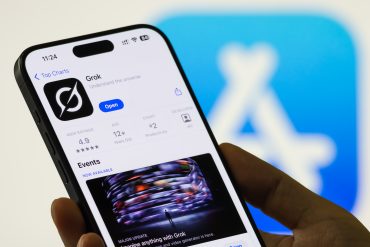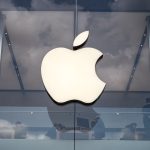
- AI
- App Store
- OS Integration
Elon Musk Threatens Apple with Lawsuit Over ChatGPT Favoritism
6 minute read

App Store rankings spark antitrust battle as Apple’s ChatGPT integration leaves competing AI apps struggling for visibility
Key Takeaways
- Musk threatens immediate legal action against Apple for alleged App Store bias favoring OpenAI’s ChatGPT over xAI’s Grok, calling it an “unequivocal antitrust violation.”
- ChatGPT ranks first while Grok sits fifth in App Store rankings, despite Grok’s recent climb to second place in the Productivity category after becoming free worldwide.
- Apple’s OpenAI integration deepens across iOS, iPadOS, and macOS through Siri improvements and Writing Tools, potentially creating structural advantages for ChatGPT over competing AI apps.
Introduction
Elon Musk escalates his battle against tech industry gatekeepers with a direct threat of legal action against Apple over alleged App Store bias. The xAI founder accuses Apple of anticompetitive behavior that prevents any AI company besides OpenAI from reaching top rankings in the App Store.
Musk’s allegations center on Apple’s editorial control and promotional practices, which he claims create insurmountable barriers for competitors. The dispute highlights growing tensions over platform governance as AI applications compete for consumer attention and market share.
Key Developments
Musk’s accusations emerged through a series of posts on X, where he questioned why his social media platform and Grok chatbot receive limited visibility in Apple’s curated sections. Despite X ranking as the top news app and Grok climbing to fifth overall after becoming free worldwide, Musk argues Apple’s “Must Have” section systematically excludes his products.
The timing coincides with Apple’s expanded integration of ChatGPT across its operating systems. Apple’s partnership with OpenAI includes direct Siri integration and system-wide Writing Tools, embedding ChatGPT capabilities into core user experiences rather than relying on standalone app downloads.
OpenAI CEO Sam Altman responded by calling Musk’s claims “remarkable” given allegations about Musk’s own platform manipulation. The exchange reignites their ongoing rivalry, which began after Musk left OpenAI’s board in 2018 and has included multiple lawsuits over the company’s mission and Microsoft partnership.
Market Impact
Apple’s AI distribution strategy creates significant competitive advantages through default positioning and reduced switching costs. The integration approach bypasses traditional App Store ranking dynamics, potentially limiting organic discovery for third-party AI applications regardless of their standalone performance.
For xAI, reduced App Store visibility translates to higher customer acquisition costs and slower organic growth. The company faces structural challenges competing against an AI assistant embedded directly into device operating systems, requiring users to actively seek alternatives rather than encountering them through normal usage patterns.
Strategic Insights
Apple’s OpenAI partnership represents a broader platform strategy focused on device stickiness and services revenue protection. By embedding AI capabilities natively, Apple maintains control over user experiences while potentially limiting the distribution advantages traditionally available to App Store developers.
The dispute reveals evolving power dynamics in AI distribution, where operating system integration becomes more valuable than traditional app rankings. Investing.com reports that Musk’s legal strategy seeks either policy concessions or regulatory scrutiny that could force more equitable distribution practices.
Platform governance questions extend beyond individual company disputes to fundamental questions about competition in AI markets. Apple’s approach suggests that successful AI distribution increasingly depends on ecosystem integration rather than standalone application performance.
Expert Opinions and Data
Industry analysts note that Apple maintains no obligation to promote specific applications in editorial sections, particularly given content moderation concerns surrounding X and Grok. The company’s editorial choices reflect brand alignment considerations alongside technical performance metrics.
AppleInsider reports that current App Store rankings operate on purely numeric algorithms without editorial manipulation, contradicting Musk’s assertions about deliberate suppression. However, the publication acknowledges that featured placement and promotional visibility operate through different editorial processes.
The controversy echoes Musk’s previous conflicts with Apple, including disputes over App Store fees and content moderation policies. His 2022 accusation that Apple’s 30% commission represents a “tax on the Internet” established a pattern of public criticism followed by private resolution through executive meetings.
Regulatory experts suggest that antitrust claims require demonstrating consumer harm rather than simply unequal promotional treatment. The legal threshold for proving anticompetitive behavior typically involves showing deliberate exclusion or preferential dealing that damages market competition rather than individual company performance.
Conclusion
Musk’s legal threat against Apple crystallizes broader tensions over AI distribution and platform control in mobile ecosystems. The dispute tests whether traditional antitrust frameworks apply to editorial curation and promotional practices in digital marketplaces.
Apple’s OpenAI integration strategy positions the company to control AI access while maintaining ecosystem cohesion, potentially reshaping how AI applications compete for user attention. The outcome influences whether platform owners can leverage native integration advantages without facing regulatory intervention over competitive fairness.







